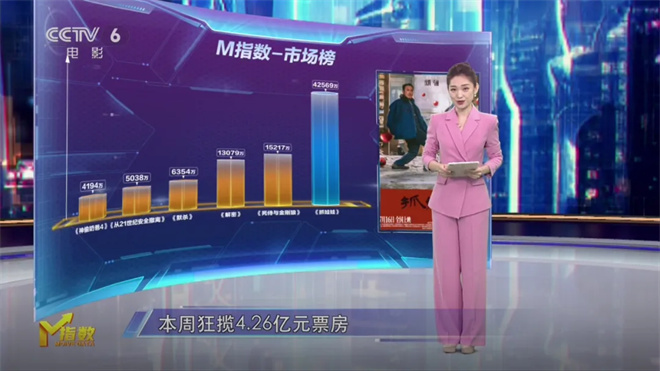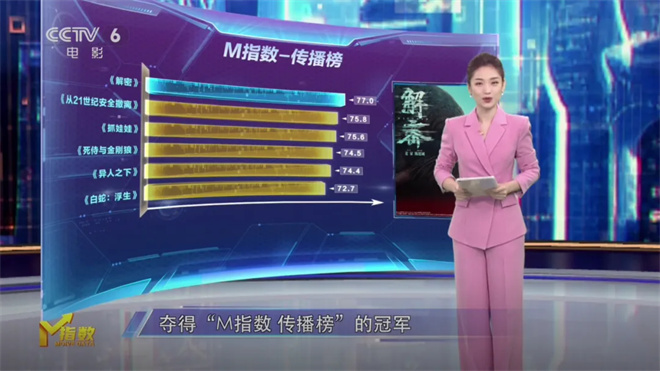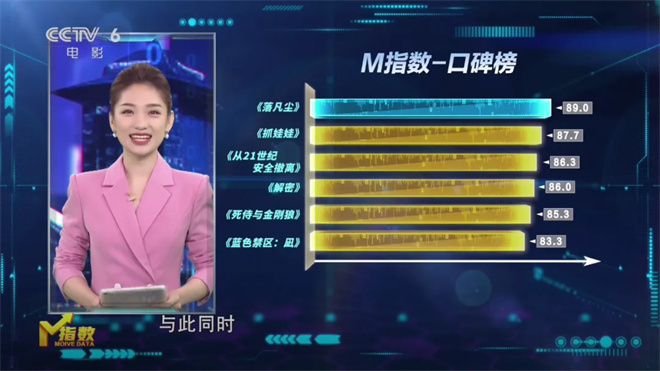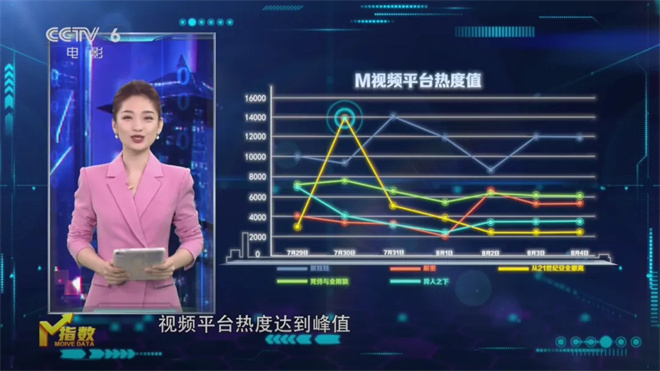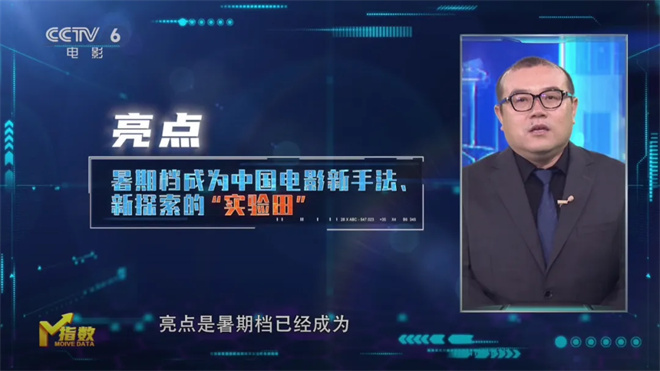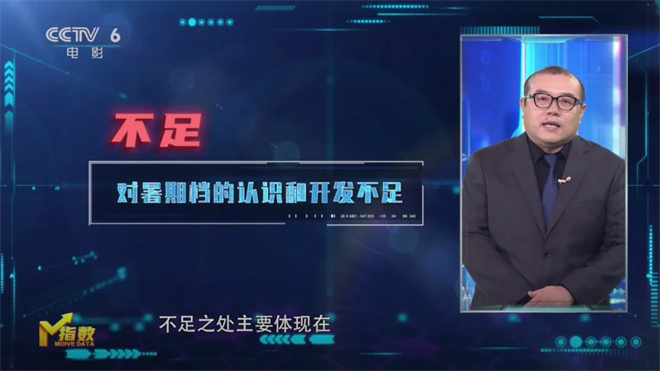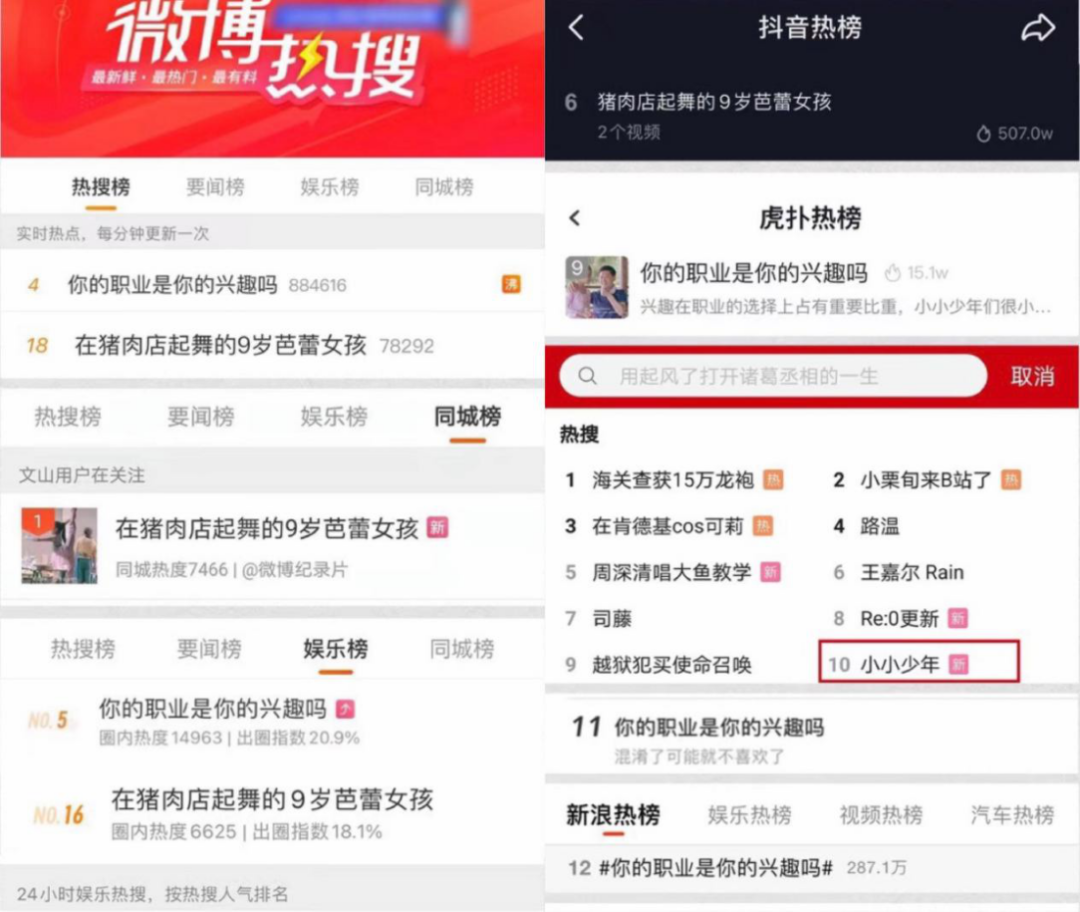The Measures for the Administration of Medical Quality was discussed and passed at the meeting of directors of the National Health and Family Planning Commission on July 26, 2016. It is hereby promulgated and shall come into force as of November 1, 2016.
Director: Li Bin
September 25, 2016
Measures for the administration of medical quality
Chapter I General Principles
the first In order to strengthen medical quality management, standardize medical service behavior and ensure medical safety, these measures are formulated in accordance with relevant laws and regulations.
the second These Measures shall apply to the medical quality management of health and family planning administrative departments at all levels and various medical institutions at all levels.
Article The National Health and Family Planning Commission is responsible for the management of medical quality in medical institutions across the country.
The local health and family planning administrative departments at or above the county level shall be responsible for the medical quality management of medical institutions within their respective administrative areas.
State administration of traditional chinese medicine and the military health authorities are respectively responsible for the medical quality management of traditional Chinese medicine and military medical institutions within the scope of their duties.
Article 4 Medical quality management is the core of medical management, and all kinds of medical institutions at all levels are the first responsible subjects of medical quality management. We should comprehensively strengthen medical quality management, continuously improve medical quality and ensure medical safety.
Article 5 Medical quality management should give full play to the role of health industry organizations, and health and family planning administrative departments at all levels should create conditions for health industry organizations to participate in medical quality management.
Chapter II Organizational Structure and Responsibilities
Article 6 The National Health and Family Planning Commission is responsible for organizing or entrusting professional organizations and trade organizations (hereinafter referred to as professional organizations) to formulate relevant systems, norms, standards and guidelines for medical quality management, and guiding local health and family planning administrative departments and medical institutions at all levels to carry out medical quality management and control. Provincial health and family planning administrative departments can formulate relevant systems, norms and specific implementation plans for medical quality management in administrative regions according to local conditions.
Local health and family planning administrative departments at or above the county level shall be responsible for supervising and guiding medical institutions to implement relevant rules and regulations on medical quality management within the scope of their duties.
Article 7 The National Health and Family Planning Commission has established a national medical quality management and control system, and improved the system and working mechanism of medical quality control and continuous improvement.
Health and family planning administrative departments at all levels shall establish or designate medical quality control organizations at all levels and in all professions (hereinafter referred to as quality control organizations) to implement the relevant work requirements of medical quality management and control.
Article 8 Under the guidance of the National Health and Family Planning Commission, national professional quality control organizations are responsible for formulating national unified quality control indicators, standards and quality management requirements, collecting and analyzing medical quality data, and regularly publishing quality control information.
Provincial and conditional municipal health and family planning administrative departments shall set up corresponding level and professional quality control organizations to carry out medical quality management and control.
Article 9 The medical quality management of medical institutions implements the responsibility system of hospital and department.
The main person in charge of a medical institution is the first person in charge of medical quality management in this institution; The main person in charge of clinical departments and departments of pharmacy, nursing and medical technology (hereinafter referred to as business departments) is the first person in charge of medical quality management in this department.
Article 10 A medical institution shall set up a special department for medical quality management to be responsible for the medical quality management of the institution.
Hospitals, maternal and child health centers and specialized disease prevention and control institutions above Grade II (hereinafter referred to as hospitals above Grade II) shall set up medical quality management committees. The director of the Medical Quality Management Committee is the main person in charge of the medical institution, and the members are composed of the heads of relevant functional departments such as medical management, quality control, nursing, hospital infection management, medical engineering, information, logistics, etc., and the heads of relevant clinical, pharmaceutical, medical technology and other departments, and special departments are designated or established to be responsible for daily management. Other medical institutions shall set up medical quality management working groups or designate full-time (part-time) staff to be responsible for the specific management of medical quality.
Article 11 The main responsibilities of the medical quality management committee of medical institutions are:
(a) in accordance with the relevant requirements of the national medical quality management, formulate the medical quality management system of this institution and organize its implementation;
(two) to organize the monitoring, early warning, analysis, assessment, evaluation and feedback of the medical quality of this institution, and regularly publish the quality management information of this institution;
(three) to formulate plans and implementation plans for the continuous improvement of medical quality in this institution and organize their implementation;
(four) to formulate and organize the implementation of the work system related to the introduction of new clinical technologies and the management of clinical application of medical technologies in this institution;
(five) to establish the training system of laws, regulations, rules and regulations and technical specifications related to the medical quality management of medical personnel in this institution, formulate the training plan and supervise the implementation;
(six) the implementation of other contents stipulated by the administrative department of health and family planning at or above the provincial level.
Article 12 Each business department of a hospital above the second level shall set up a working group for medical quality management of the undergraduate department, with the head of the department as the main person in charge, and designate a person to be responsible for the daily specific work. The main responsibilities of the medical quality management working group are:
(a) the implementation of medical quality management related laws, regulations, rules, normative documents and undergraduate medical quality management system;
(two) to formulate the annual quality control implementation plan of undergraduate course room, and organize the management and control of medical quality in the department;
(three) to formulate plans for the continuous improvement of medical quality of undergraduate course room and specific implementation measures;
(four) regularly analyze and evaluate the medical quality of the department, put forward rectification measures for the weak links of medical quality and organize their implementation;
(five) the training and publicity and education of the medical staff in this department on the laws, regulations, rules and regulations, technical specifications, standards, diagnosis and treatment routines and guidelines related to medical quality management;
(six) in accordance with the relevant requirements, submit the relevant information of medical quality management of undergraduate course room.
Article 13 Health and family planning administrative departments and medical institutions at all levels should establish and improve the training and assessment system for medical quality management personnel, and give full play to the role of professionals in medical quality management.
Chapter III Medical Quality Assurance
Article 14 Medical institutions should strengthen the professional ethics education of medical staff, carry forward the humanitarian spirit of saving lives, adhere to the principle of "patient-centered", respect the rights of patients, and perform the sacred duties of preventing and treating diseases, saving lives and protecting people’s health.
Article 15 Medical personnel should abide by professional ethics, conscientiously abide by the relevant laws, regulations, norms and standards of medical quality management and the provisions of the medical quality management system of this institution, standardize clinical diagnosis and treatment behavior, and ensure medical quality and medical safety.
Article 16 Medical institutions should practice in accordance with the approved and registered diagnosis and treatment subjects. Health technicians should obtain professional qualifications in accordance with the law to carry out diagnosis and treatment activities, and the human resources of medical institutions should meet the needs of clinical work.
Medical institutions shall, in accordance with the requirements of relevant laws and regulations, norms and standards, use approved drugs, medical devices and consumables to carry out diagnosis and treatment activities.
Medical institutions should carry out medical technology in accordance with their functional tasks and technical capabilities, and strengthen the management of clinical application of medical technology in accordance with the relevant provisions of the state on medical technology and surgical management.
Article 17 Medical institutions and their medical staff should follow the relevant requirements of clinical diagnosis and treatment guidelines, clinical technical operation specifications, industry standards and clinical pathways to carry out diagnosis and treatment, strictly abide by the core system of medical quality and safety, and achieve reasonable inspection, rational drug use and reasonable treatment.
Article 18 Medical institutions should strengthen the construction of pharmaceutical departments and quality management of pharmaceutical affairs, enhance the ability of clinical pharmaceutical service, implement the clinical pharmacist system, and give play to the role of pharmacists in rational drug use management such as prescription review, prescription review and pharmaceutical supervision. Clinical diagnosis, prevention and treatment of diseases should follow the principle of safe, effective and economical rational drug use, and respect patients’ right to know about drug use.
Article 19 Medical institutions should strengthen nursing quality management, improve and implement nursing-related work systems, technical specifications and nursing guidelines; Strengthen the construction of nursing team, innovate management methods and continuously improve nursing quality.
Article 20 Medical institutions should strengthen the quality management of medical technology departments, establish a quality management system covering the whole process of inspection and inspection, strengthen indoor quality control, cooperate with the external quality evaluation, and promote the mutual recognition of clinical inspection results.
Article 21 Medical institutions should improve the management system of outpatient and emergency departments, standardize the quality management of outpatient and emergency departments, strengthen the allocation of professionals and technical forces, optimize the service process of outpatient and emergency departments, ensure the medical quality and safety of outpatient and emergency departments, and take the quality of outpatient and emergency services as an important part of the assessment departments and medical personnel.
Article 22 Medical institutions should strengthen the management of hospital infection, strictly implement the provisions of disinfection and isolation, hand hygiene, rational use of antibacterial drugs and hospital infection monitoring, establish a risk monitoring, early warning and multi-sectoral collaborative intervention mechanism for hospital infection, carry out training and education on hospital infection prevention and control knowledge, and strictly implement the reporting system for hospital infection outbreaks.
Article 23 Medical institutions should strengthen the quality management of medical records, establish and implement the quality management system of medical records, and ensure that medical records are objective, true, accurate, timely, complete and standardized.
Article 24 Medical institutions and their medical staff should follow the principle of informed consent of patients, respect patients’ right to choose and privacy, and keep patients’ privacy confidential.
Article 25 Medical institutions to carry out medical services of traditional Chinese medicine shall comply with the relevant provisions of the state on the management of diagnosis and treatment, technology and pharmacy of traditional Chinese medicine, and strengthen the management of medical quality of traditional Chinese medicine.
Chapter IV Continuous Improvement of Medical Quality
Article 26 A medical institution shall establish a medical quality management and control system with full participation and covering the whole process of clinical diagnosis and treatment services. Medical institutions should strictly follow the relevant requirements of health and family planning administrative departments and quality control organizations on medical quality management and control, actively cooperate with quality control organizations to carry out their work, and promote the continuous improvement of medical quality.
Medical institutions shall, in accordance with the relevant requirements, timely and accurately submit relevant data and information on medical quality and safety of their own institutions to the health and family planning administrative departments or quality control organizations.
Medical institutions should skillfully use medical quality management tools to carry out medical quality management and self-evaluation, improve the relevant index system of medical quality management according to the quality control indicators and standards issued by the health and family planning administrative department or quality control organization, collect relevant information in time, and form the basic data of medical quality of this institution.
Article 27 Medical institutions should strengthen the construction of clinical specialty service capacity, attach importance to the coordinated development of specialties, formulate the development plan of specialty construction and organize its implementation, and implement the multidisciplinary diagnosis and treatment model of "taking patients as the center and taking diseases as the chain". Strengthen continuing medical education, attach importance to personnel training, innovative research of clinical technology and transformation of achievements, and improve the ability and level of clinical service in specialized departments.
Article 28 Medical institutions should strengthen the quality management and control of single diseases, establish an index system for the management of single diseases in their own institutions, make reference standards for medical quality of single diseases, and promote the fine management of medical quality.
Article 29 Medical institutions should formulate satisfaction monitoring indicators and constantly improve them, regularly monitor patients’ and employees’ satisfaction, and strive to improve patients’ medical experience and employees’ practice experience.
Article 30 Medical institutions should carry out accurate cost management in the whole process, strengthen cost accounting, process control, detail management and quantitative analysis, constantly optimize the input-output ratio, and strive to improve the utilization efficiency of medical resources.
Article 31 Medical institutions shall conduct on-site inspections and spot checks on the medical quality management of various departments, establish an internal publicity system for medical quality of their own institutions, and publicize the completion of key indicators of medical quality of various departments internally.
Medical institutions should regularly carry out training and assessment on medical and health technical personnel in medical and health management laws and regulations, hospital management system, medical quality management and control methods, professional and technical specifications and other related contents.
Medical institutions should regard the medical quality management of departments as an important index for the comprehensive target assessment, appointment, promotion and evaluation of department heads.
Medical institutions should regard the medical quality management of departments and medical staff as an important basis for regular assessment, promotion and performance evaluation of departments and medical staff.
Article 32 Medical institutions should strengthen the construction of hospital information platform based on electronic medical records, improve the standardization level of hospital information work, make information work meet the needs of medical quality management and control, and make full use of information means to carry out medical quality management and control. Establish and improve the information management system of medical institutions to ensure information security.
Article 33 Medical institutions should evaluate the implementation of their medical quality management requirements, timely analyze and feedback the collected medical quality information, give early warning of medical quality problems and medical safety risks, take effective intervention measures in time for existing problems, and evaluate the intervention effect to promote the continuous improvement of medical quality.
Chapter V Prevention of Medical Safety Risks
Article 34 The state establishes a reporting system for medical quality (safety) adverse events, encourages medical institutions and medical personnel to actively report adverse events in the process of clinical diagnosis and treatment, and promotes information sharing and continuous improvement.
Medical institutions should establish relevant systems for information collection, recording and reporting of medical quality (safety) adverse events, and take it as an important basic work for medical institutions to continuously improve medical quality.
Article 35 Medical institutions shall establish a monitoring and reporting system for adverse drug reactions, drug damage incidents and adverse medical device incidents, and report to relevant departments in accordance with relevant state regulations.
Article 36 Medical institutions should raise awareness of medical safety, establish a medical safety and risk management system, improve the relevant work system, emergency plan and workflow of medical safety management, strengthen safety and risk management in key departments and key links of medical quality, and implement patient safety objectives. Medical institutions should raise awareness of risk prevention, establish and improve relevant systems, and use medical liability insurance, medical accident insurance and other forms of risk sharing to protect the legitimate rights and interests of both doctors and patients. Formulate plans to prevent and deal with medical disputes, and prevent and reduce the occurrence of medical disputes. Improve the complaint management, timely resolve and properly handle medical disputes.
Chapter VI Supervision and Administration
Article 37 The local health and family planning administrative departments at or above the county level shall be responsible for the supervision and inspection of the medical quality management of medical institutions in their respective administrative areas. Medical institutions shall cooperate and shall not refuse, obstruct or conceal the relevant information.
Article 38 Local health and family planning administrative departments at or above the county level shall establish an evaluation system for medical quality management of medical institutions, organize or entrust professional institutions according to local actual conditions, carry out third-party evaluation by means of information technology, and regularly publish evaluation results in the industry.
Local health and family planning administrative departments at or above the county level and quality control organizations at all levels should focus on strengthening the management and supervision of medical quality in county-level hospitals, primary medical institutions and private medical institutions.
Article 39 The National Health and Family Planning Commission established the national medical quality management and control information system based on the national population health information platform, and collected, analyzed and fed back the main index information of the national medical quality management.
Provincial health and family planning administrative departments should rely on the regional population health information platform, establish the medical quality management and control information system in their respective administrative areas, collect, analyze and feedback the information related to medical quality management of medical institutions in their respective administrative areas, evaluate the medical quality of medical institutions, and realize the interconnection with the national medical quality management and control information system.
Article 40 Health and family planning administrative departments at all levels shall establish an incentive mechanism for medical quality management in medical institutions, take appropriate forms to praise and encourage advanced medical institutions and management personnel in medical quality management, and actively promote advanced experiences and practices.
Article 41 Local health and family planning administrative departments at or above the county level shall establish an interview system for medical quality management of medical institutions. Interviews with the responsible persons of various medical institutions at all levels who have major or extraordinarily serious medical quality and safety incidents, have serious medical quality and safety risks, or have not been rectified as required; To cause serious consequences, be informed, dealt with according to law, and reported to the superior health and family planning administrative departments for the record.
Article 42 Health and family planning administrative departments at all levels shall incorporate the medical quality management of medical institutions and the results of supervision and inspection into the key indicators of the assessment of medical institutions and their principals, and combine them with the verification of medical institutions, hospital assessment, evaluation and personal performance assessment. If the examination is unqualified, the medical institution and its principal responsible person shall be dealt with as appropriate.
Chapter VII Legal Liability
Article 43 Medical institutions that carry out diagnosis and treatment activities beyond the scope of registration, use non-health technicians to engage in diagnosis and treatment, illegally carry out medical technologies that prohibit or restrict clinical application, and use unqualified or unapproved drugs, medical devices and consumables to carry out diagnosis and treatment activities shall be handled by local health and family planning administrative departments at or above the county level in accordance with relevant national laws and regulations.
Article 44 Medical institutions in any of the following circumstances, the health and family planning administrative departments at or above the county level shall be ordered to make corrections within a time limit; If it fails to change within the time limit, it shall be given a warning and imposed a fine of not more than 30,000 yuan; The person in charge and other persons directly responsible for public medical institutions shall be punished according to law:
(a) the medical quality management department has not been established or the full-time (part-time) staff has not been designated to be responsible for the medical quality management;
(two) the relevant rules and regulations of medical quality management have not been established;
(three) the medical quality management system is not implemented or not implemented in place, resulting in confusion in medical quality management;
(four) the occurrence of major medical quality and safety incidents hidden;
(five) failing to submit relevant information on medical quality and safety in accordance with the provisions;
(six) other acts in violation of the provisions of these measures.
Article 45 Doctors and nurses practicing in medical institutions who commit any of the following acts in their practice activities shall be dealt with by local health and family planning administrative departments at or above the county level in accordance with the provisions of the Law on Medical Practitioners, the Regulations on Nurses and other relevant laws and regulations; If the case constitutes a crime, criminal responsibility shall be investigated according to law:
(a) violation of health laws, regulations, rules and regulations or technical operation norms, resulting in serious consequences;
(two) due to irresponsible delay in the rescue and diagnosis and treatment of critically ill patients, resulting in serious consequences;
(3) Issuing inspection results and relevant medical documents without personal examination;
(4) divulging the patient’s privacy, causing serious consequences;
(five) to carry out medical activities without observing the principle of informed consent;
(six) illegal medical technology, unqualified or unapproved drugs, medical devices, consumables, etc., which are prohibited or restricted in clinical application;
(seven) other acts in violation of the provisions of these measures.
Other health technicians who violate the provisions of these measures shall be dealt with according to the provisions of relevant laws and regulations.
Article 46 If the local health and family planning administrative departments at or above the county level fail to perform their supervisory duties in accordance with the provisions of these Measures, resulting in serious consequences, the directly responsible person in charge and other directly responsible personnel shall be given administrative sanctions according to law.
Chapter VIII Supplementary Provisions
Article 47 The meanings of the following terms in these Measures:
(1) Medical quality: refers to the degree of medical care given to patients by medical institutions and their medical staff in the process of clinical diagnosis and treatment according to the requirements of professional ethics and diagnosis and treatment norms under the existing medical technology level, ability and conditions.
(2) Medical quality management: refers to the process of managing and controlling medical service elements, processes and results by using modern scientific management methods in accordance with the formation law of medical quality and the requirements of relevant laws and regulations, so as to realize systematic and continuous improvement of medical quality.
(3) Core system of medical quality and safety: refers to the relevant systems that medical institutions and their medical staff should strictly abide by in their diagnosis and treatment activities, which mainly include: the first consultation system, the three-level rounds system, the consultation system, the graded nursing system, the duty and handover system, the difficult case discussion system, the emergency rescue system for critical patients, the preoperative discussion system, the death case discussion system, the check system, the operation safety verification system, the operation grading management system, the new technology and the new project access system.
(4) Medical quality management tools: refer to measures, methods and means adopted to achieve medical quality management objectives and continuous improvement, such as total quality management (TQC), quality circle (PDCA cycle), quality control circle (QCC), performance evaluation of disease diagnosis related groups (DRGs), single disease management, clinical pathway management, etc.
Article 48 These Measures shall come into force as of November 1, 2016.










